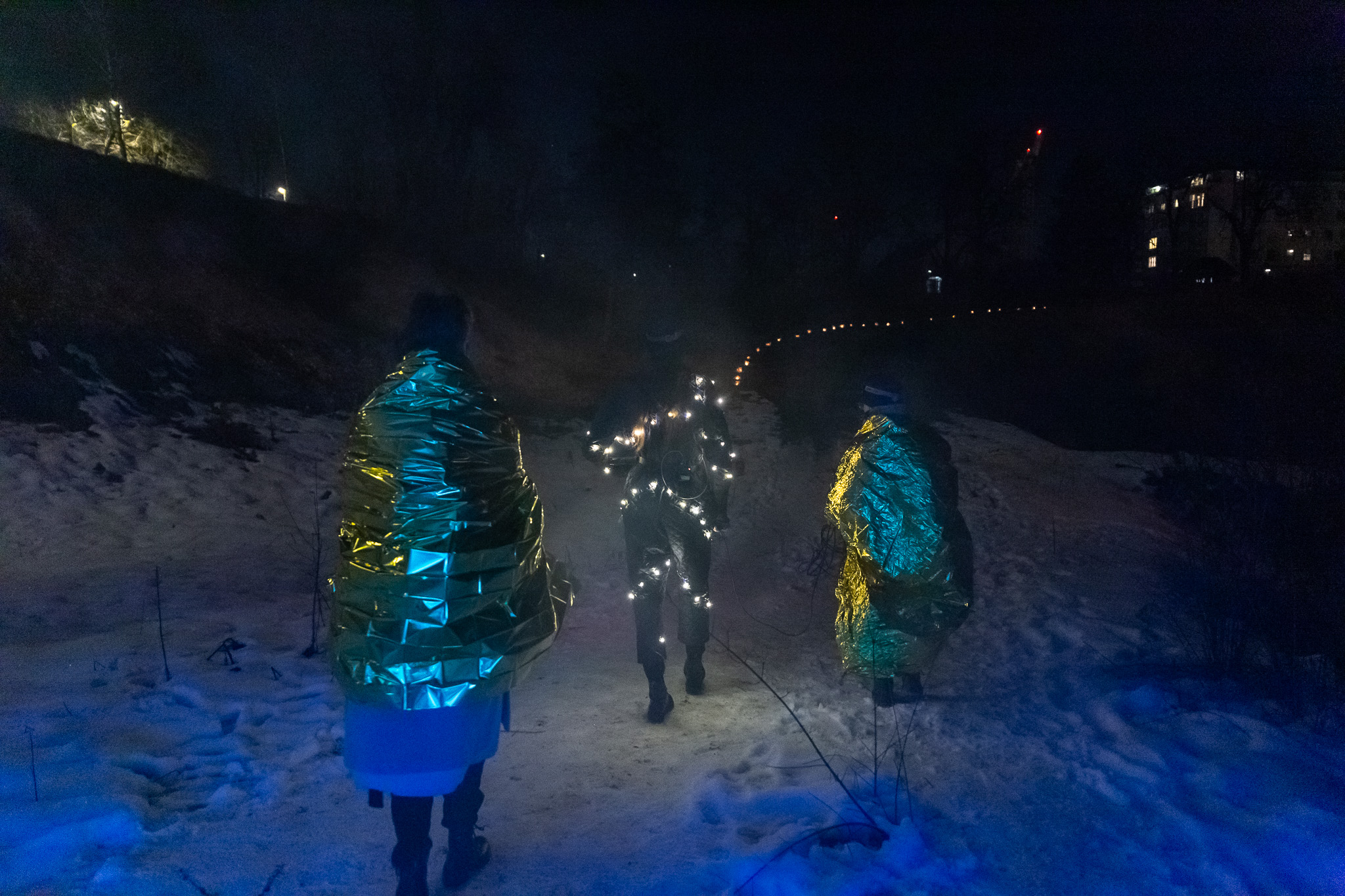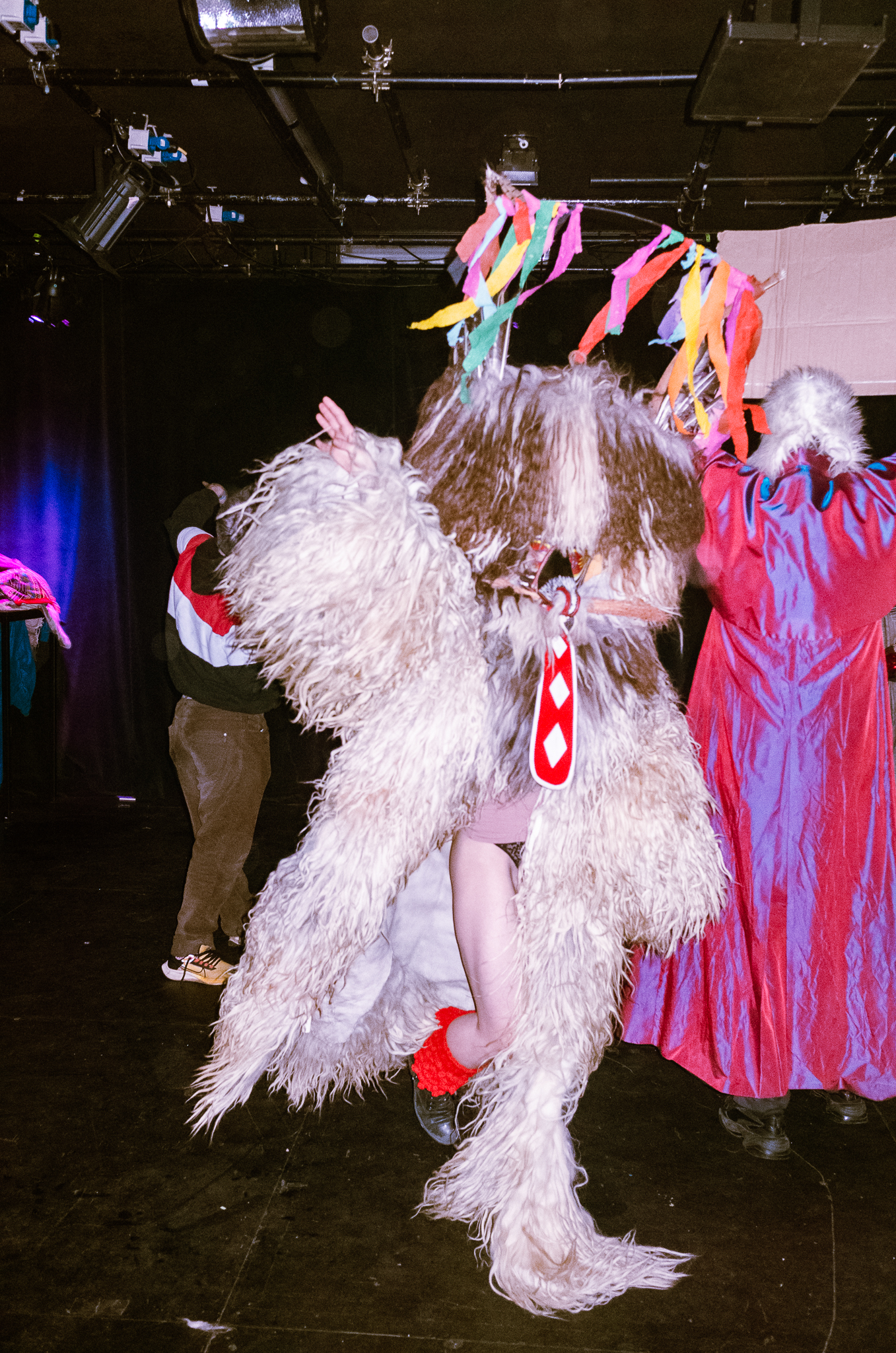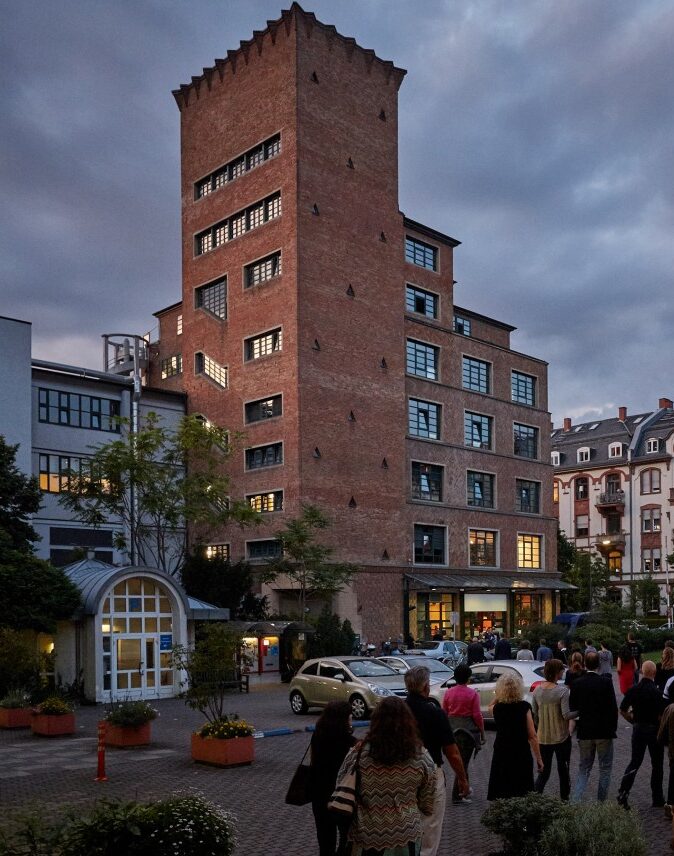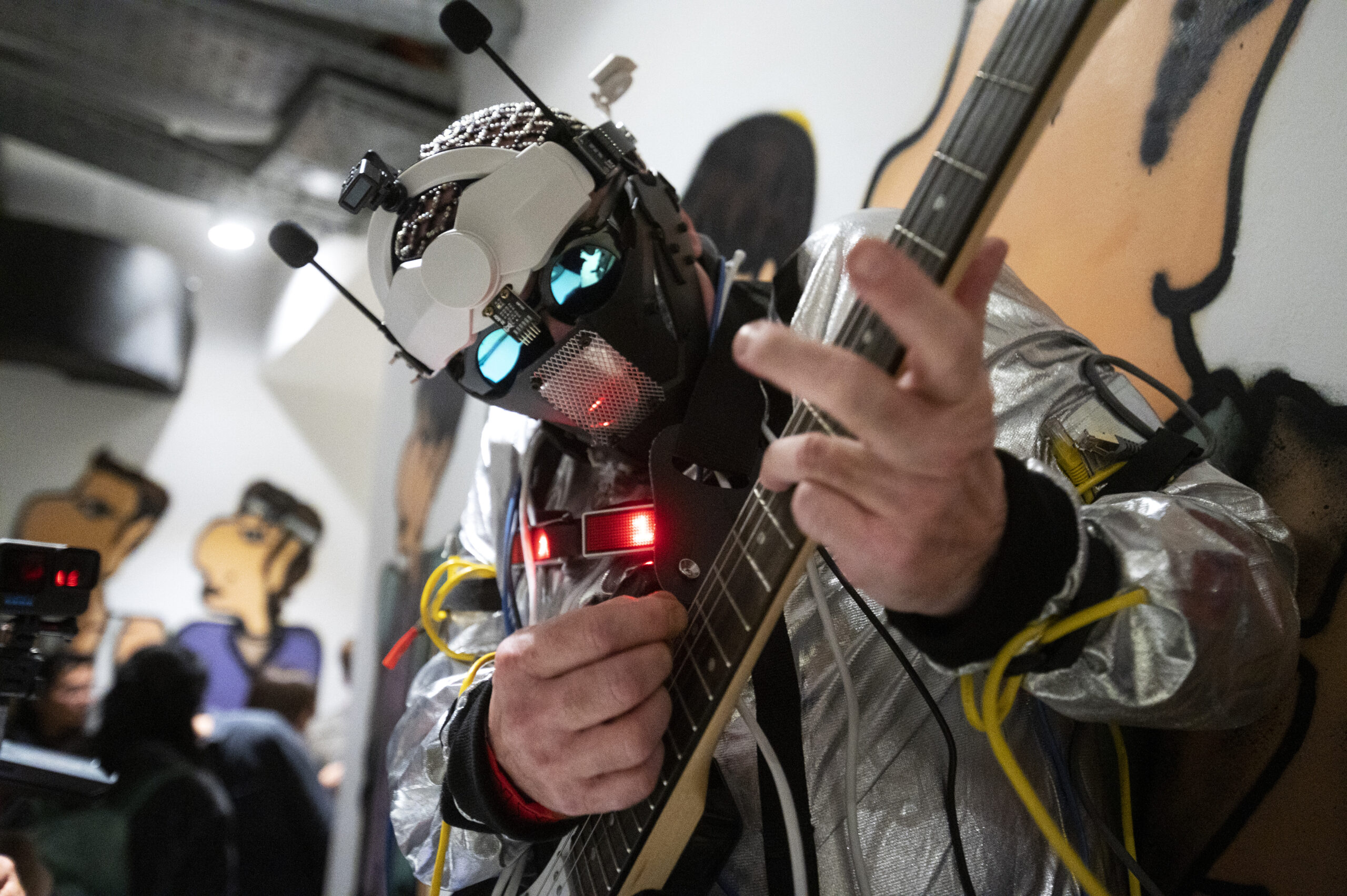War and Theater – A Backward Glance
The two-day international conference War and Theater addresses war, exile, trauma and focuses on artistic, especially theatrical, responses to them. We will ask ourselves what role art plays in both immediate processing and in the long-term formation of political and personal memory of the traumatic experiences of war and exile. We will focus on the complex interplay of the roles of art as a political tool, as a means of alleviating pain, and as a provider of pure aesthetic pleasure. We will look at children’s and juvenile literature, critique official commemorative strategies, and analyse different types of art therapy, ideological remnants of the Second World War, literary multilingualism, uprootedness, escapism. Although the conference is primarily devoted to the Yugoslav wars of the 1990s, the speakers will also address the War in Ukraine and the genocide in Gaza.
The event will be held in English!
Free entry!
The performance Stitches by Damir Avdič is also taking place during the week as part of the project.
- International Conference
Speakers: Damir Arsenijević, Zala Dobovšek, Blaž Kavšek, Katja Kobolt, Gregor Moder, Djordje Popović, Oksana Timofeeva, Lana Zdravković
Design: Niko Lapkovski
Production: Maska Ljubljana
War and Theater – A Backward Glance is part of the project MOJ DOM supported by EU Programme CERV (European Remembrance), caried out by the partner consortium that combines research, non-governmental and artistic organizations from both new and old EU member states: Codici – Cooperativa sociale onlus, Lapsus – Laboratorio di analisi storica del mondo contemporaneo (Italy), Documenta – Centar za suočavanje s prošlošću, Institut za društvena istraživanja, Institut za etnologiju i folkloristiku (Croatia), Maska, Mirovni institut (Slovenia), Univerza v Regensburgu (Germany).
Lectures
- Zala Dobovšek: The Exiled Body in the Theater
The contribution is a case study of the Theater of the Exiles (Incorrigible Optimists), which was run by theater actress Draga Potočnjak in Slovenia between 1992 and 1997. During the war in the former Yugoslavia in the 1990s, central Slovenian theater production was less active in reflecting on it than the rest of the European cultural space. Such a (non)response was mainly attributed to the tricky position of Slovenia, which is said to still be too involved (politically and geographically) in the events to be able to »soberly« analyze and critically evaluate it. The uncertainty about the escalation of the war spoke volumes about the common consciousness (escapism) of Slovenian theater creators, who, if anything, instead of politically direct performances, preferred texts that only thematized (any) war (metaphorical comment). Only individual activism led to a coherent, engaged gesture in relation to the war situation. In addition to an analytical review of the operation of Potočnjak’s theater, a comprehensive interview with its founder will be conducted and will try to, through a critical social and artistic perspective, place this »phenomenon« in today’s time, new geopolitical contexts and models of staging (re)presentations. The author will also get in touch with former members of the Theater of Exiles, who at the end of the 1990s mostly dispersed around the world and migrated to »new« socio-political environments.
- Lana Zdravković: Performing the Lived Experience of Postwar Othering
The lecture will examine the embodiment procedures of the Other as presented in the performance The Oath (KITCH, 2016). It will analyze how personal experiences of postwar exile shaped the performing strategy, as well as the consequences it has had on the performers’ personal and professional lives. It will also address the spectators’ gaze and their perverse pleasure in watching the embodied otherness, which is attractive as long as it is different and far away from the imaginary »us«. The lecture will conclude with an investigation into the impact of the »embodiment of the imaginary self« on performance art, as well as its wider implications.
- Blaž Kavšek: Bosnian War, Genocide, and the »Holocaust script«: The Tangles of Mystification
Three Pulitzer Prizes have been awarded for the coverage of the Bosnian War (1992–95) and the Bosnian genocide. In 1993 the prize was shared by John F. Burns (New York Times) and Roy Gutman (Newsday), and in 1996 it went to David Rhode (The Christian Science Monitor). Their reports sought to replace the infamous narrative of ancient Balkan tribal hatreds, that supposedly fuelled and steered the conflict, with a narrative of clear genocidal intent on the part of Serbian forces. To suceed, they have relied heavily on evocations of the Holocaust. This contribution analyses the extent and manner of their and their critic’s (such as Noam Chomsky) evocations of this paradigmatic genocide and attempts to situate them within the long tradition of debate on the representation of the Holocaust, and especially within the discussion of its mystification, which is also relevant to how we understand and remember the Yugoslav wars and war crimes of the 1990s.
- Katja Kobolt: »The Little Prince« Defies Silence. Literary Agency After Migration: Ismet Bekrić, Šimo Ešić, Valerija Skrinjar-Tvrz
Based on interviews with authors and editors of children’s literature, mainly from Bosnia and Herzegovina, who continued their lives and creative paths either in Slovenia or Germany as a result of the war (1992–1995), this paper will analyse the ways and spaces of establishing as well as hindering authorial agency in exile. Following the professional trajectories of children’s writers and editors Ismet Bekrić (1943–), Šimo Ešić (1954–) and Valerija Skrinjar Tvrz (1928–2023), the author will shed light on the institutional forms of production structures, the problems within them, and ask questions about the ideological regimes of the field of intellectual activity in Slovenia and Germany since the 1990s. In this way, the paper will also provide insights into the heterogeneous ways of (non)confronting the fact of the brutal war in Bosnia and Herzegovina within the Slovenian cultural field of the 1990s.
- Gregor Moder: War and Representation: On The Balkan Trilogy by Dušan Jovanović
The central question of this contribution is the relationship between war and its representation on stage and/or in literature. We will take a close look at the case of three dramatic texts written in the 1990’s known as the Balkan Trilogy by Dušan Jovanović, a renowned Slovenian theater director and playwright. These plays address the war, survival and exile in Yugoslavia by way of a detour through the myths of Antigone and Sisyphus, and with the help of a reference to Bertolt Brecht’s classic anti-war play Mother Courage, a play that itself speaks about the horrors of a recent war through the detour to an older one. What is the purpose of such detours? Why is it necessary to speak about the horrors of war through the prism of myth or historical distance? Our claim is that it is neither an attempt to domesticate the horror and to offer us some kind of relief from the present trauma, nor a means to confer an air of historical importance to the ostensibly prosaic contemporary events. Instead, we shall argue that the explicit staging of the war trauma is the only way to encounter its radically opaque kernel. Far from alleviating the pain, such stagings allows the community to engage with and begin working through the collective trauma.
- Oxana Timofeeva: The Theater of War
The talk will conceptualize the idea of the theater of war operations. The theatricality of war, read literally, will be addressed in its specific temporality of repetition, as well as in its spatial characteristics, its architectures and geo-logics – the scene, the battle ground, and the undergrounds of war, from bomb shelters and trenches to mass graves. It will also focus on the unconscious scenarios in the theater of war and their phantasmatic realizations.
- Damir Arsenijević (and Saša Asentić): From Victim to Survivor: The Realization Value of Survival in Artistic Practices in Bosnia and Herzegovina
This collaborative chapter between psychoanalyst and theorist Damir Arsenijević and artist Saša Asentić delves into the intricate nexus of art, trauma, and so-called transitional justice in the context of post-war post-genocide Bosnia and Herzegovina. Analysing how select artistic pieces encircle the traumatic core of war and genocide in Bosnia and Herzegovina, the analysis is oriented towards critiquing the current production of victimhood through the post-war local ethnic authoritarian and international bureaucratic management of trauma. Asentić brings forth insights gleaned from his two performances staged in theater and museum spaces in Serbia and Germany. Arsenijević offers a trenchant critique of the political economy of commemorations in post-war Bosnia and Herzegovina, focusing on two unexplored artistic interventions. Central to this collaboration is a collective endeavor to contemplate the transformative potential of art in navigating the aftermath of trauma. This collaboration is envisioned to contemplate the conditions of art in which and through which the following develop: the affect of love, the principle of accessibility, and ethics of care and responsibility.
- Djordje Popović: Post-Yugoslav Author in the House of Being
This essay focuses on the expressions and politics of linguistic idealism in the transnational turn taken by a group of variously displaced post-Yugoslav writers. At the centre of the analysis are several auto- and meta-fictional moments in the works of the renowned Bosnian-American author Aleksandar Hemon. Moving from his insights about language acquisition and storytelling to his musings on the epistemological advantages of bilingualism, it shows Hemon placing an inordinate amount of faith in the power of language to not only affect historical experience – a conceit common to writers in exile who have long felt compelled to seek refuge in language – but also to engender a radically different social and political reality. This same power is denied to human beings in history. Their every attempt to overcome the limits supposedly inherent to their humanity is dismissed as transcendental folly, a project doomed, according to Hemon, to end in catastrophic failure. The author argues that a lot more is at stake in Hemon’s reflections on his artistic medium than the obvious benefits such exaggerated claims provide to the writer (and his critic). Hemon’s aestheticisation of politics is possible – and it even appears strangely compelling – because it is predicated on a more fundamental transformation in our understanding of the philosophical subject, one that turns the idea of (transcendental) homelessness from a historical contingency into an internal structure of existence.
Schedule

Funded by the European Union. Views and opinions expressed are however those of the author(s) only and do not necessarily reflect those of the European Union or CERV. Neither the European Union nor the granting authority can be held responsible for them.













